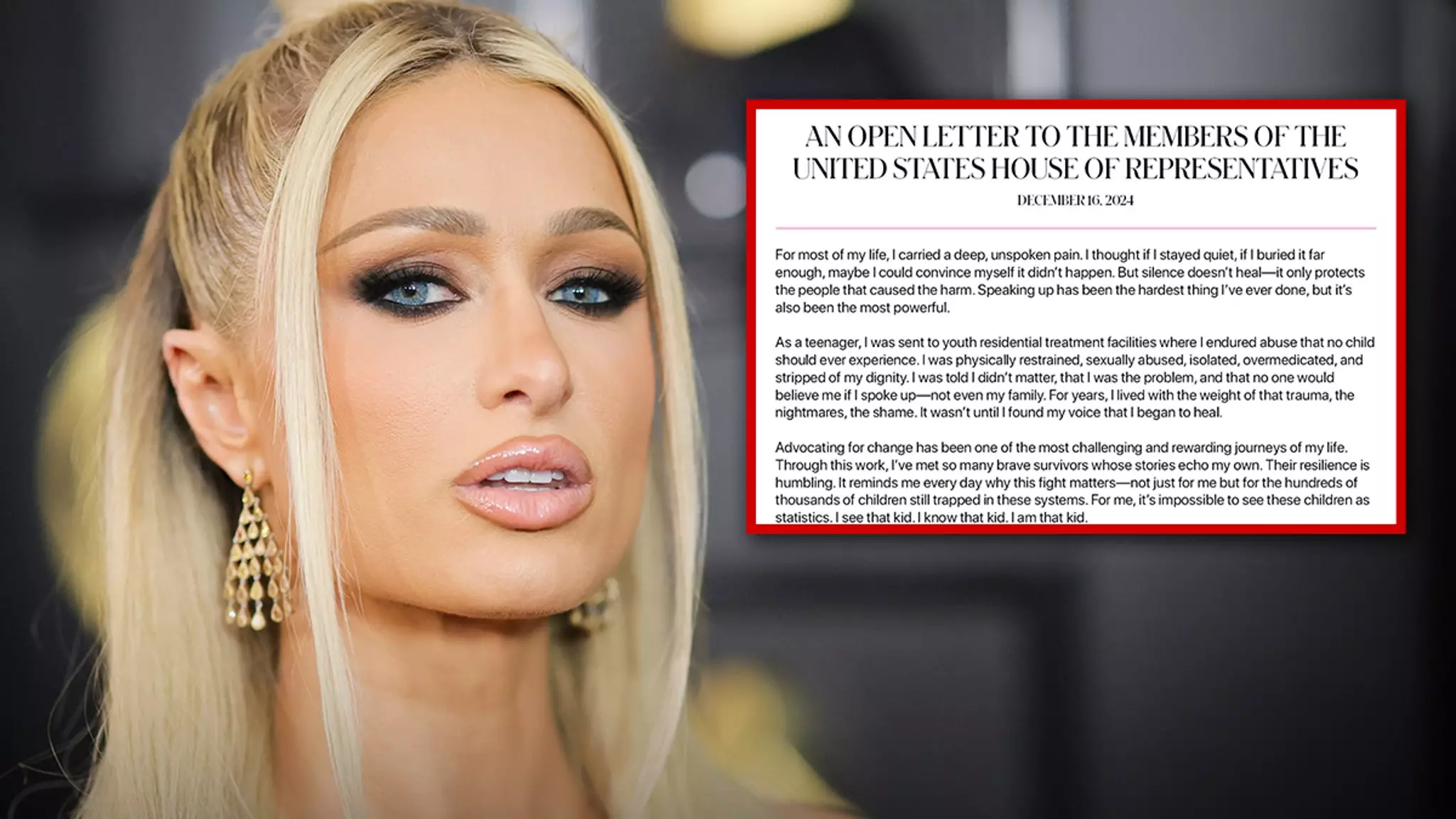Paris Hilton has emerged as an unexpected yet formidable advocate, leveraging her personal experiences to catalyze meaningful change in legislative practices. After the recent success of her bill in the Senate, Hilton is not ready to rest; she is determined to push forward with a fervor that has captivated many. In her latest open letter, Hilton reflects on the profound impact of sharing her traumatic experiences from a youth treatment facility. Her call to action for the U.S. House of Representatives to expedite the “Stop Institutional Child Abuse Act” before the upcoming Christmas recess underscores her commitment to this cause.
Hilton has articulated that silent suffering does not equate to healing. For years, she believed that avoiding discussions about her past would diminish its power over her—an illusion shattered by her own brave revelations. Instead of protecting herself, her silence only shielded those responsible for the harm she endured. By choosing to speak out, she has not only liberated herself but has also become a beacon of hope for other survivors, showcasing the strength found in shared experiences.
The passage of Hilton’s bill through the Senate was a pivotal moment, lauded as one of her life’s greatest achievements. This development signals significant bipartisan support for a cause that addresses the systemic issues within youth treatment facilities—an area that has historically gone underrepresented. With only a week remaining in the 118th Congress, Hilton’s efforts are particularly urgent; the need for swift action has never been more pronounced.
Her bill, which she introduced over a year ago, aims to bring to light the harsh realities faced by young people in institutional settings. In her advocacy, Hilton has bravely recounted her own experiences of physical, emotional, and sexual abuse suffered while attending Provo Canyon School in Utah. Her transparency has not only humanized the statistics surrounding institutional abuse but has also mobilized both public and political support.
In her journey, Hilton has fostered a coalition of survivors whose narratives resonate with her own. Their stories bring a shared perspective that strengthens the case for reform. Each testimonial adds depth to the legislative push, emphasizing the collective trauma endured by countless individuals in similar situations. The unity among these survivors highlights the critical need for systemic change within youth treatment programs.
As Hilton continues her advocacy, her determination reflects larger societal shifts toward acknowledging and addressing institutional abuses. Her message promotes the idea that silence is detrimental, not just for survivors but for society at large. By transforming her trauma into a platform for change, Hilton exemplifies how personal pain can fuel public policy reform, providing a pathway for healing not only for herself but for numerous others.
As the legislative clock ticks down, Hilton’s urgent plea to the House of Representatives is a clarion call for lawmakers to act decisively. The “Stop Institutional Child Abuse Act” is not just a piece of legislation; it represents hope for countless survivors. Paris Hilton’s story reinforces the idea that change is possible when individuals leverage their voices to advocate for justice. The resolution of this act could pave the way for future reforms, ensuring that the horrors of institutional abuse remain in past decades, where they belong. The moment is now for Congress to prioritize the voices of those affected and enact the changes that many have long awaited.

